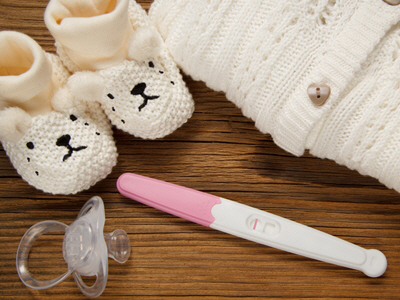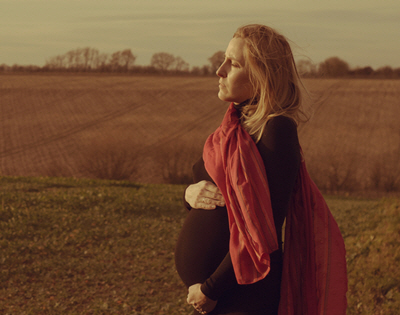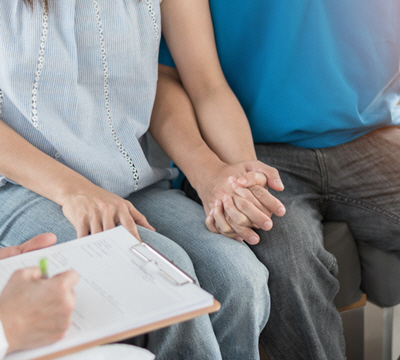
Infertility
 “Why not me?”
“Why not me?”
Thoughts of blame.
Low self-esteem.
Why can’t I get pregnant like every other woman? Am I not normal?
And then comes the incessant search for what could be the cause of the infertility. This research can lead to complex and difficult decisions regarding how deeply you pursue the quest for having children.
 The struggle is real.
The struggle is real.
Everything must be considered. More exercise? Or less? Go on a diet – or just try to eat healthy – perhaps healthier than you’ve ever considered.
And then comes the doctors’ visits and exploring all alternatives hoping that something will finally work, often involving anxiety-provoking procedures!
Let’s not forget the cost of this process, with uncertain outcomes. IVF may even result in multiple attempts, if the couple agrees to try to have a pregnancy.
The cycle: desperate for a baby, regimented efforts to conceive, feeling disappointed when the monthly cycle begins. Disheartening. Feelings of emptiness expand in your heart – and are exacerbated when a pregnant woman or a family with an infant walk by.
If after months of effort to conceive results in a diagnosis of infertility for either of the partners, generally there develops feelings of anxiety, sadness, frustration, and sometimes blame.
 And, finally, you conceive – and the worries come at you from a different angle.
And, finally, you conceive – and the worries come at you from a different angle.
The ‘what-ifs’ take over shortly after the initial excitement of receiving the positive pregnancy diagnosis.
What-if… the IVF doesn’t ‘stick’?
What-if… the pregnancy doesn’t go full-term?
What-if… I do something that causes me to lose the baby?
I know that infertility treatment is a journey. I’ve been on your emotional roller coaster.
 One of my clients had an emotional journey as she tried to conceive.
One of my clients had an emotional journey as she tried to conceive.
Elizabeth (an alias) was 32 years old when she and her husband started trying to start a family. After a year of trying on their own, they consulted a fertility specialist. They did the recommended testing, but no cause was found for their problem.
After three IUIs were unsuccessful, they moved on to IVF. It was a difficult time. Elizabeth had trouble tolerating the hormones that were being introduced to her body. The shots were difficult for her and for her husband.
It seemed that all their friends had children, and it was hard to spend time with them. Her sister who had two young children was always saying the wrong thing, and family relationships became strained. It seemed that no one who hadn’t experienced infertility could understand.
 Emotions upside down…
Emotions upside down…
Elizabeth had always been a successful and positive person, but now she was feeling sad and resentful. She couldn’t imagine a future without children. She hated feeling envious of mothers. Her feelings were so unfamiliar to her, and she didn’t know how to cope.
Elizabeth reached out for help. In therapy, she learned how to relax her body and to reduce her most scary thoughts about the future. She learned that her feelings were normal, and she need not blame herself for having them.
We strategized about the best way to deal with social events. She learned mind-body skills that she could use during treatment and in her future life.
Ultimately, Elizabeth was able to conceive and have a successful pregnancy. She became one of the many women who had her children with the help of IVF. The outcome was positive, but during the time she was going through it, she didn’t know what would happen. It was so important and yet so uncertain. No wonder it was hard.
Let me help you on your personal journey.
As the author of The Infertility Workbook: A Mind-Body Program to Enhance Fertility, Reduce Stress, and Maintain Emotional Balance, I have worked with countless women struggling with infertility. I understand the monthly disappointments; the feelings of failure.
Reach out now for a free consultation to learn how I can help you.
Call me at (202) 258-7079 or complete the contact form below.
